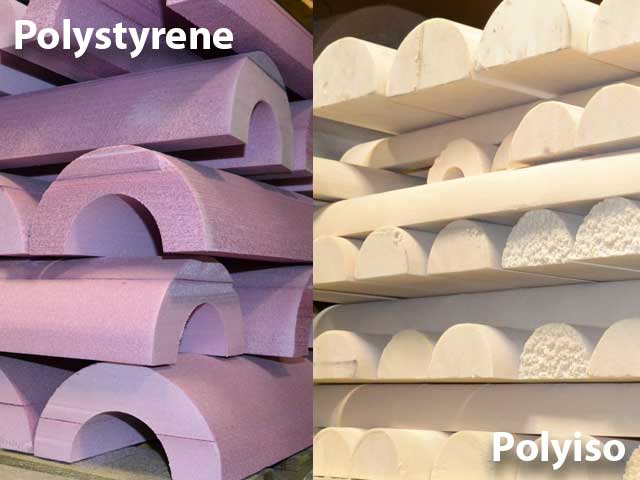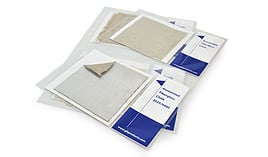Mechanical insulation projects often demand different types of insulation solutions based on the application. In this piece we examine the differences between two types of insulation commonly used in mechanical insulation applications such as pipes, ducts and vessels.
Extruded Polystyrene Foam (XPS) insulation, which is commonly referred to as “Styrofoam” insulation, is a rigid, cellular foam insulation that is commonly used on pipes, ducts, tanks, and equipment that are operating at temperatures below ambient. Some examples of where this is used are refrigeration lines and food and beverage lines. There are several different types of polystyrene insulation but usually Type XIII is what is specified to use in mechanical applications that have service temperatures from -297°F to +165°F.

Polyisocyanurate thermal insulation (PIR), which is commonly referred to as “Polyiso” insulation, is a rigid foam insulation with a closed cell structure. It comes in two different grades and six different types. Grade 1 has a temperature range of -70°F to +300°F whereas Grade 2 has a temperature range of -297°F to +300°F. It is available in six types - a range of densities, but the most commonly used densities used are types IV and II, which are both in the 2 to 2-½ lb/ft³ density range.
Polyiso, just like Styrofoam, is commonly used as industrial and commercial pipe insulation. It can also be laminated to aluminum foil and used for fabrication of pre-insulated duct that is used for heating, ventilation and air conditioning systems.
Why choose one over the other?
Well, as we all know from experience, sometimes you simply choose one product over the other due to cost or availability. But, cost and availability aside, there are other reasons that you would want to use one over the other, depending on the application, of course.
Polyiso insulation products are thermoset, which means that after they’re manufactured they are rigid and will not soften or melt. They can withstand elevated temperatures without losing their insulating properties.
Polystyrene insulation products are thermoplastic, which means that they soften at 165°F and melt anywhere from 200°F to 210°F. These temperatures are common on roofs and walls, and if material softens or melts due to high temperatures, then the insulating properties melt along with it.
With that being said, Extruded Polystyrene (or XPS or “Styrofoam”) can only be used in applications up to 165°F, whereas Polyisocyanurate (or PIR or “Polyiso”) can be used in applications up to 300°F.


